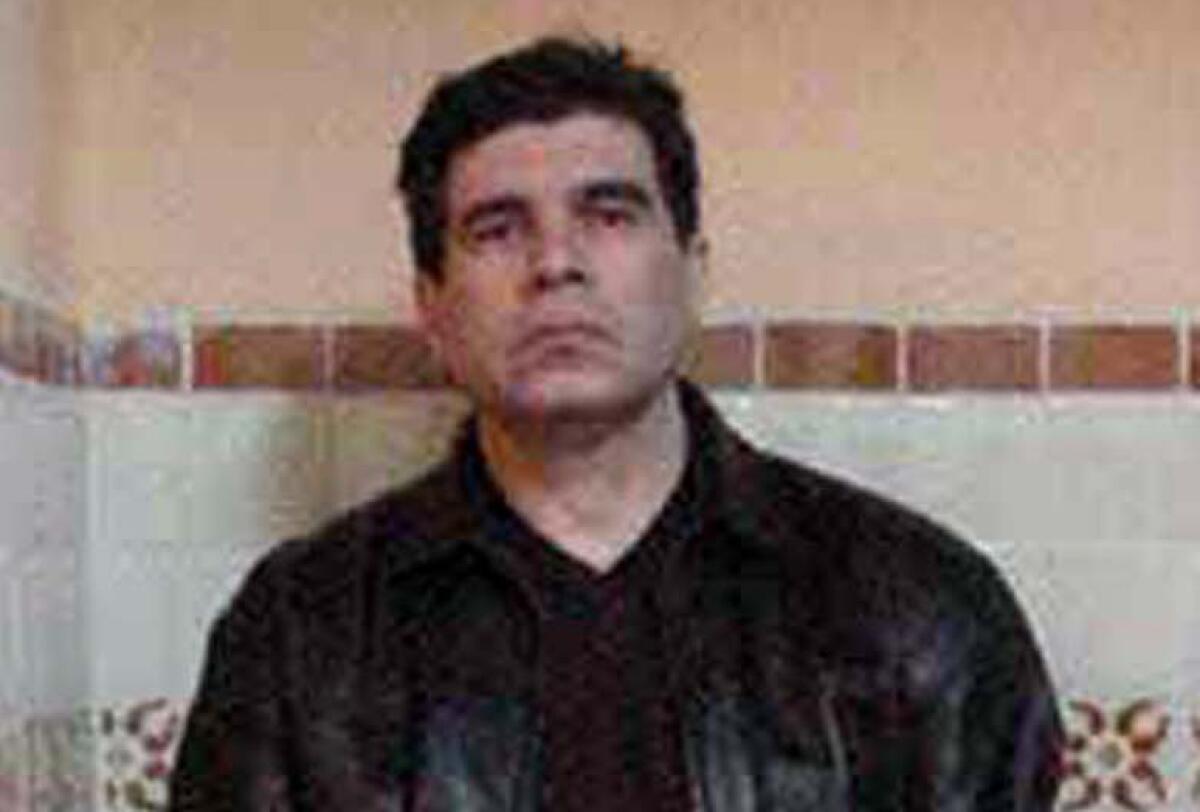Former drug kingpin Benjamín Arellano Félix seeks early prison release. Feds say no way

- Share via
SAN DIEGO — Benjamín Arellano Félix, once one of the most powerful drug lords in Mexico, wants out of prison early.
Eleven years into a 25-year prison term, Arellano has petitioned a San Diego federal judge for “compassionate release.”
His motion, filed April 25, remains sealed. But on Tuesday, federal prosecutors filed a 19-page response that provides insight into Arellano’s reasoning and goes on to argue why it would be a bad idea.
Arellano, 68, cites the risk of contracting COVID-19 in prison as the main reason for his request for a sentence reduction, coupled with the argument that he has served a “sufficient” amount of time behind bars for his offenses, according to court records.
The decision will ultimately be up to a judge.
Arellano’s rise to drug kingpin, and his family’s control of the lucrative Tijuana smuggling corridor in the 1990s, are now part of narco lore.
The Arellano brothers were major traffickers of cocaine and marijuana, and later cheap methamphetamine, into the U.S. They operated initially as part of a coalition of trafficking groups, but some of those business relationships turned sour. The resulting turf wars culminated in a particularly bloody chapter in Tijuana’s history.
Arellano was arrested in Mexico in 2002 and extradited to San Diego in 2011. He pleaded guilty to racketeering and money-laundering charges and agreed to forfeit $100 million as part of the deal.
Under the plea, he admitted to being the head of the Arellano Félix Organization and using violence — from kidnappings to murders — to further the cartel’s interests.
He is now serving his sentence at a high-security federal prison in Lee County, Va.
Border City is a new LA Times Presents podcast from The San Diego Union-Tribune.
Judges may grant a reduction in sentence if they find “extraordinary and compelling reasons” and as long as the person is not considered a danger. Typical reasons include old age, terminal illness or “extraordinary and compelling” family circumstances.
Arellano meets none of those criteria, prosecutors argue. He is being treated for hypertension in prison, and he has been vaccinated and boosted against COVID-19, they said.
Prosecutors argued that the “court’s assessment should be driven by the prevailing scientific view that vaccination makes extremely rare the risk of severe disease from COVID-19.”
The serious nature of Arellano’s crimes also argues against early release, they said.
“Defendant ran an international drug cartel. As the leader of the organization, Defendant supervised the importation of tons of narcotics into the United States and directed countless kidnappings and murders in furtherance of the cartel,” prosecutors said. “Conversely, there is nothing in Defendant’s history and characteristics that justify, excuse, or mitigate his egregious conduct.”
Upon receiving Arellano’s motion, U.S. District Judge Larry Burns ordered the federal public defenders office to review the motions and relevant documents to determine whether he should be appointed a defense attorney. On May 27, a public defender wrote to the judge that after a review of the material, appointment of counsel was not recommended at this time.
Arellano’s chance of early release seems to be a long shot.
When the same judge sentenced Arellano in 2012, he denied a request to receive a five-year credit for time already served in Mexico.
“A 25-year sentence is completely justified,” Burns said at the time. “If I had it within my powers, I would impose a longer sentence.”
Younger brother Francisco Javier Arellano Félix was sentenced to life in prison for his role in running the cartel, but the term was later reduced to 23½ years for his cooperation while locked up. Another brother, Eduardo Arellano Félix, was deported in August after serving the majority of his 15-year sentence in the U.S. and was promptly re-arrested in Mexico.
More to Read
Sign up for Essential California
The most important California stories and recommendations in your inbox every morning.
You may occasionally receive promotional content from the Los Angeles Times.














